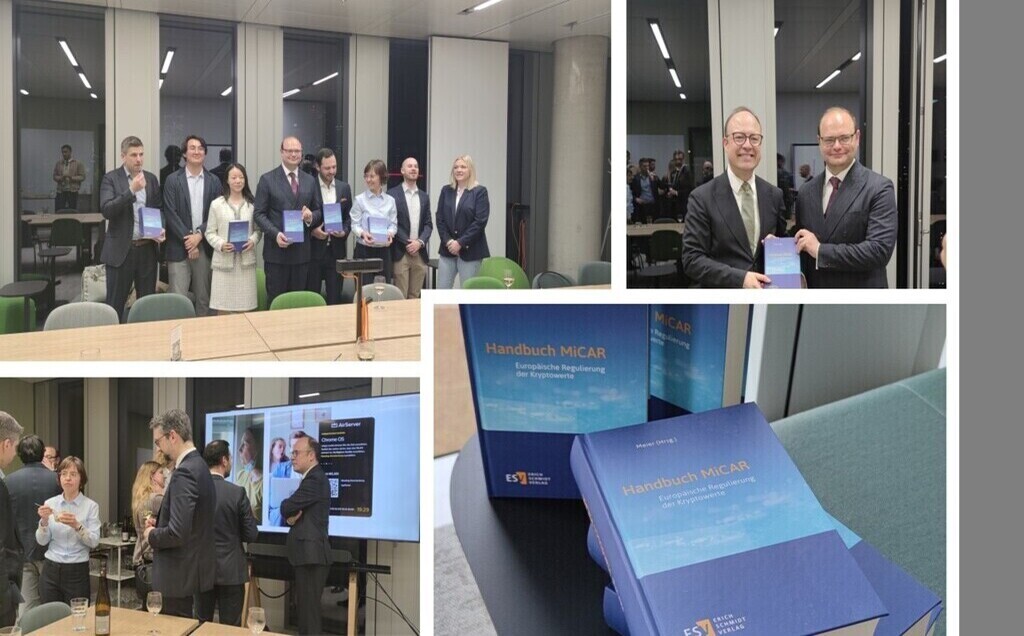Europe offers a lot of advantages, especially for financial service providers that are located within the European Union (EU) if it comes to the internationalization of their business model. The progressive harmonization of the legislation regarding financial supervision and the capital markets within the European Union allows supervised and regulated banks and financial service providers to offer their services in other member states without the necessity of an additional regulatory license in this country. If the targeted country is a member of the EU a relatively simple notification procedure is enough to provide a uniform regulation by the home authority of the expanding company. But does this also apply to crypto and blockchain based businesses or are there specificities for these businesses?
EQUAL RIGHTS FOR ALL – BUT ONLY IF THE PREREQUISITES ARE THE SAME
The principle “Equal rights for all” does apply. A business model that is the subject of authorization and ongoing supervision according to the European directives and regulations has to be regulated and supervised by the competent authority. A Spanish bank as well as a French financial portfolio manager for example have to acquire a permission to perform their services from their respective home authorities. If the business of e.g. a European bank or financial service provider is about to be expanded to Germany, the expending company can make use of the harmonized European passporting-rules by notifying its home authority that it will expand its business to Germany. The home authority then notifies BaFin which can only prohibit the market entrance of the company in question if the services that that company offers are not covered by the license from the home authority of the company and therefore are not supervised at all.
INCONSISTENT EUROPEAN BLOCKCHAIN REGULATION AS AN OBSTACLE FOR EU-PASSPORTING
When harmonizing the rules and regulations of financial supervision, the European Union primarily had in mind financial service providers and traditional banks. Blockchain-based business models on the other hand are not regulated uniformly by the member states. While Bitcoins and comparable cryptocurrencies are still classified by the German BaFin as units of account and therefore as financial instruments most other member states do not classify them as financial instruments. Therefore, business models with a connection to cryptocurrencies as e.g. the operation of a crypto exchange or a Bitcoin ATM require a BaFin permission in Germany while in other member states these businesses do not require a permission from the supervising authority. An Austrian investment advisor who is regulated with regards to his financial advisory business in Austria by the Austrian FMA still needs a BaFin license if he wants to advice his customers in Germany to invest in Bitcoin. The passporting of his Austrian FMA license fails because of the fact that advising someone to invest in Bitcoin is not an activity that needs FMA permission or supervision in Austria. If BaFin would allow him to offer that specific service without a German license the Bitcoin related investment advice would be unregulated.
APPLYING FOR A BAFIN PERMISSION OR COOPERATION WITH A LICENSED PARTNER
The German market still is an interesting target for Blockchain companies. The German economy is strong and potential customers are solvent. Therefore, entering the German market can be a lucrative move even if a BaFin license is necessary for the business model in question. Because the application process and the subsequent ongoing supervision impose an administrative and financial burden on the applicants, a cooperation with an already licensed and supervised partner – e.g. a bank or a financial service provider – can be a valid alternative in certain individual cases. In the last couple of years certain banks in Germany have specialized in those kinds of partnerships by providing the regulatory infrastructure for their customers. The question whether this kind of partnership is a viable solution for a specific blockchain-related business model depends on the details and has to be decided on a case by case basis.
Attorney Lutz Auffenberg, LL.M. (London)
subscribe to Newsletter






